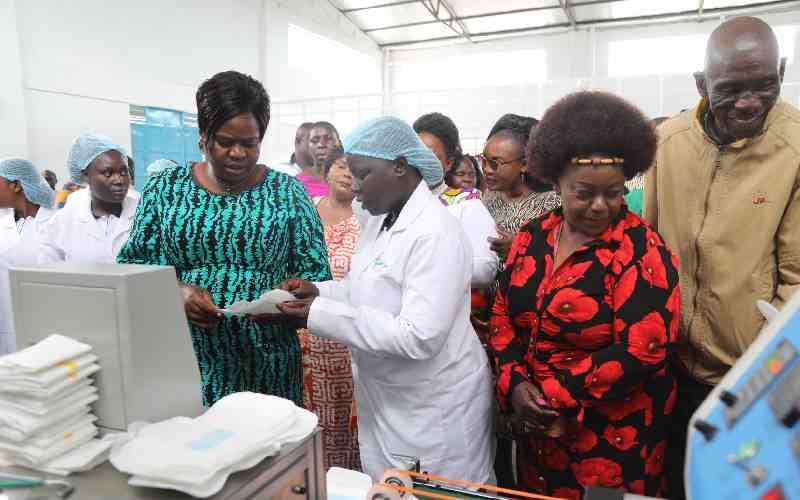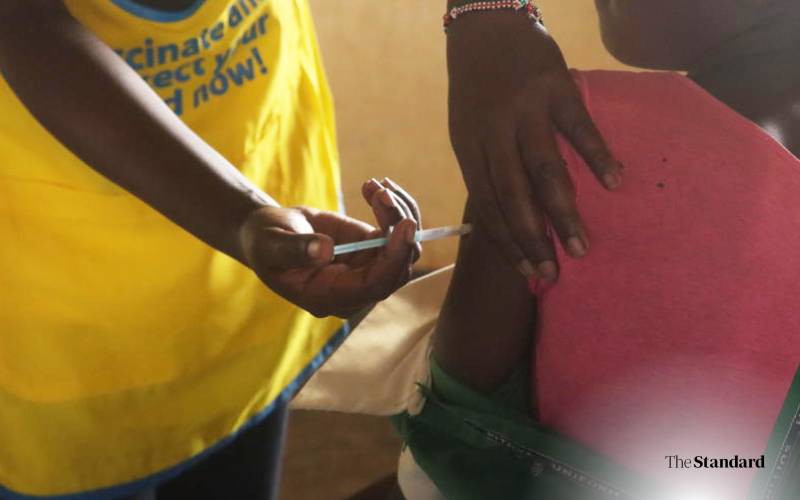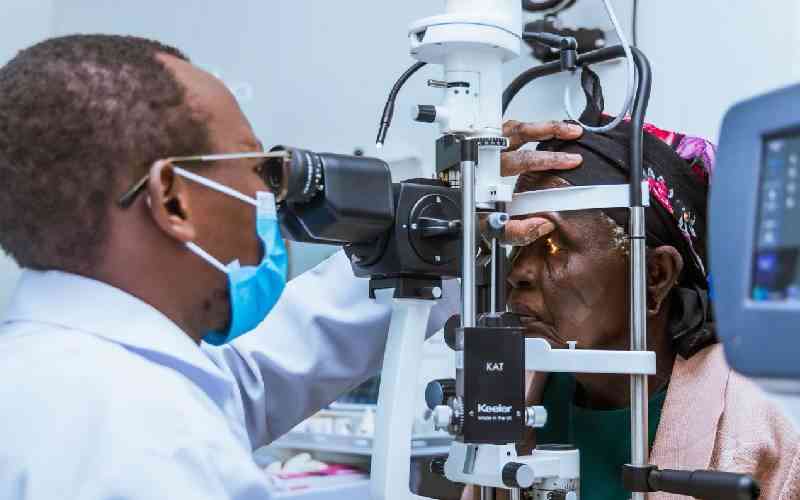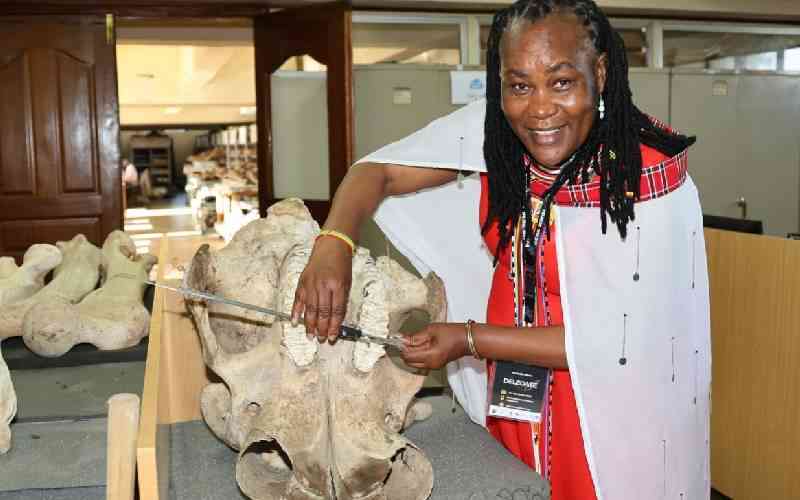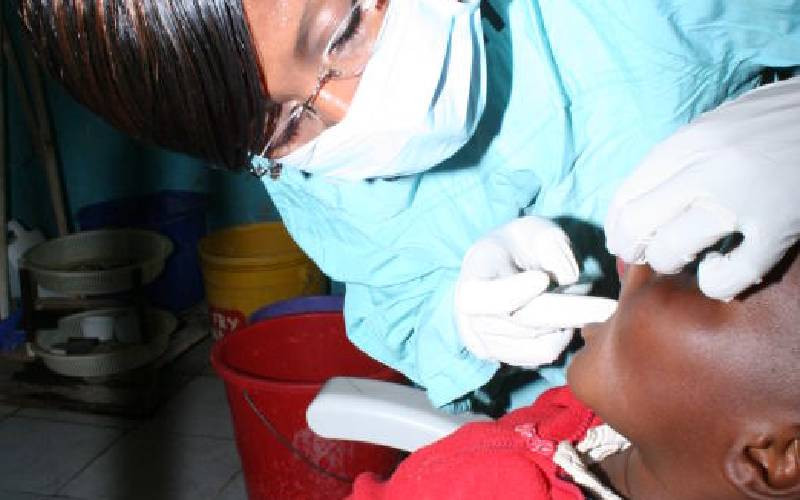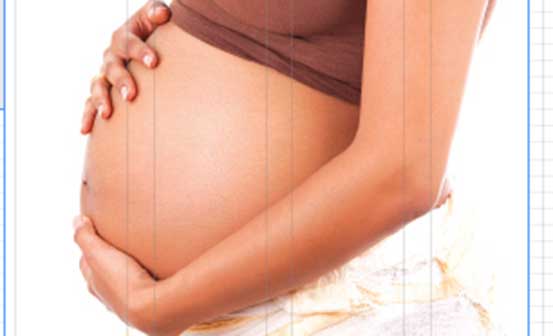
NAIROBI: A pioneering medical procedure in reproductive health offers new hope to hundreds of women with fertility challenges.
The milestone operation took place in the US, and will enable women born without a uterus, or who had theirs removed, become pregnant and give birth if it turns out successful.
Kenyan medical experts have hailed the breakthrough at the Cleveland Clinic in the US, where doctors this week did a successful uterus transplant on a 26-year-old woman.
The nine-hour surgery was the first of nine such authorised procedures at the clinic on patients with uterus complications, creating new hopes of advances in reproductive health.
The patient, who was not named to protect her privacy, had a condition known as uterine factor infertility, where women are either born without a uterus or suffer irreversible uterine damage thus cannot get carry a pregnancy to term.
FERTILITY
According to the team of doctors headed by Dr Andreas Tzakis, the uterine transplant will be temporary because the uterus must be removed after the recipient has had one or two babies, so she can stop taking anti-rejection drugs for life.
“It’s a great breakthrough in science because it will give women a chance to carry pregnancies to a viable term,” said Dr John Ong’ech, a reproductive health specialist.
However, he expressed caution that it would take more advances in science to ensure both the mother and child are well monitored.
Fertility specialist Prof Koigi Kamau also hailed the uterine transplant adding that it would give women with uterus abnormalities a fair chance to carry their own children if the procedure proves successful.
“Motherhood is more fulfilling if you carry the baby yourself,” said Prof Kamau in an interview with The Standard on Sunday.
This is great news to the female fraternity given the number of women who cannot conceive due to medical conditions.
Prof Kamau said some of these conditions include blocked fallopian tubes, fibroids and other abnormalities of the reproductive health system as the most prevalent causes of infertility in Kenya and larger Africa.
However, Prof Kamau pointed out that it could be years before the uterine transplant is available in Kenya. But there are other options like medicines, surgery to unblock fallopian tubes and remove fibroids and in vitro fertilisation that are equally promising.
Unlike Kenya, countries such as US have fascinating medical procedures to help couples struggling with infertility. The breakthrough at Cleverland Clinic is evidence enough.
According to Dr Tzakis the medical institution has a record of about 4,000 to 5,000 transplants of kidneys, livers and other abdominal organs.
For the uterus transplant, ten candidates enrolled were aged between 21-45 year and were picked for this procedure if they had malformation of the uterus or infertility due to uterine damage.
Once the other women are identified, their ovaries would be stimulated to produce multiple eggs and 10 embryos selected and frozen ahead of transplantation after healing.
ANTI-REJECTION DRUGS
They would be closely monitored throughout pregnancy and delivery. They were also expected to take anti-rejection drugs throughout and have monthly check ups.
The surgical procedure was referred to as a ‘unique type of transplant’ because its benefit ends after childbearing is complete thus the organ is removed or allowed to be rejected after the baby or babies are born.
“This eliminates the need for lifelong immunosuppression and associated medical problems,” explained Dr Tzakis.
The experts at the Cleveland Clinic explained that the uterus is not expected to be lifelong as the patient is only allowed to keep the uterus for up to two pregnancies in order to withdraw her from a prescription of lifetime anti-rejection drugs.
“The transplanted uterus is then removed or allowed to disintegrate,” read a brief from Cleveland clinic.
According to the team of doctors drawn from various medicine specialties, it will take about a year for one to heal, then she can become pregnant through in vitro fertilisation.
As in other organ transplants, she will be expected to take anti-rejection drugs to prevent her body from rejecting the uterus.
Cleveland Clinic began screening candidates for uterus transplants in the last quarter of 2015 as part of a clinical trial approved by Cleveland Clinic’s Institutional Review Board that comprise transplant specialists, obstetricians and gynecologists, bioethicists, psychiatrists, nurses and social workers.
Women with high blood pressure, diabetes, or significant heart, liver, kidney or central nervous system disease and smokers were not eligible as candidates. The treatment has also been done in Sweden allowing women born without a uterus or those with a defective uterus, to give birth. By September last year nine uterus transplants had been performed in Sweden with five pregnancies and four births.
SITUATION LOCALLY
In Kenya, there are about five to ten couples who have challenges conceiving.
“Men and women have a 50-50 contribution to infertility just that women consult reproductive health specialists earlier than their male counterparts do,” said Prof Kamau.
Lack of advanced infertility treatment at public health facilities and lack of adequate specialists had locked out treatment to the select few who can afford.
 The Standard Group Plc is a multi-media organization with investments in media
platforms spanning newspaper print
operations, television, radio broadcasting, digital and online services. The
Standard Group is recognized as a
leading multi-media house in Kenya with a key influence in matters of national
and international interest.
The Standard Group Plc is a multi-media organization with investments in media
platforms spanning newspaper print
operations, television, radio broadcasting, digital and online services. The
Standard Group is recognized as a
leading multi-media house in Kenya with a key influence in matters of national
and international interest.


